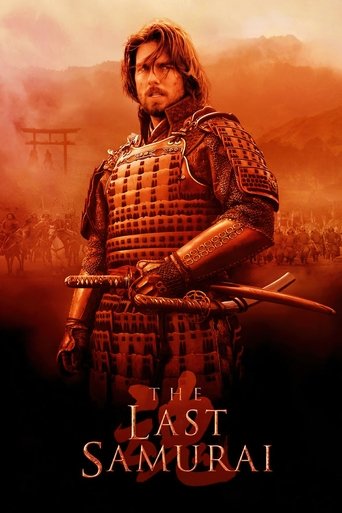En el rostro del enemigo, en el corazón de un hombre, se encuentra el alma de un guerrero.
"The Last Samurai," a cinematic masterpiece released in 2003 by Warner Bros. Pictures and Radar Pictures, transports audiences to 19th-century Japan, weaving a tale of cultural collision and personal transformation. Directed by Edward Zwick and filmed in both New Zealand and the United States, the film follows Captain Nathan Algren, portrayed by Tom Cruise, a disillusioned American soldier hired to train the Imperial Japanese Army. Tasked with suppressing a samurai rebellion led by the noble Katsumoto, played by Ken Watanabe, Algren finds himself captured and immersed in the samurai way of life. This unexpected journey forces him to confront his own demons and reevaluate his understanding of honor and loyalty. As Algren integrates into the samurai community, the film delves deep into the clash between modernity and tradition, embodied by the samurai's resistance to Western influence and the encroaching industrialization. The lush cinematography captures the serene beauty of rural Japan, juxtaposed against the brutal realities of warfare, creating a visually stunning narrative. The performances, particularly Watanabe's portrayal of Katsumoto, bring a profound emotional depth to the story, highlighting the samurai's struggle to preserve their way of life amidst inevitable change. The film's meticulous attention to historical detail and cultural authenticity elevates it beyond a mere action epic, offering a poignant reflection on the passage of time and the resilience of the human spirit. The narrative arc of "The Last Samurai" is as much about Algren's personal redemption as it is about the samurai's fight for survival. Through his relationship with Katsumoto and the samurai, Algren undergoes a profound transformation, shedding his past guilt and embracing a new code of honor. This journey is mirrored in the film's exploration of the samurai's own internal conflicts, as they grapple with the inevitability of their decline. The climactic battle scenes are not only thrilling but also serve as a metaphor for the clash between old and new, with Algren's ultimate decision to fight alongside the samurai symbolizing his complete assimilation into their world. "The Last Samurai" stands as a testament to the power of storytelling, blending action, drama, and historical insight into a compelling narrative. The film's success lies in its ability to transcend cultural boundaries, offering a universal message about the importance of integrity and the enduring nature of tradition. Through its rich character development and breathtaking visuals, "The Last Samurai" remains a timeless exploration of honor, sacrifice, and the indomitable human spirit.
Año2003
Página principal
Presupuesto140000000$
Duración154 minuto
Ingresos456800000$
GénerosDramaAcciónBélica
Países de producciónUnited States of America




